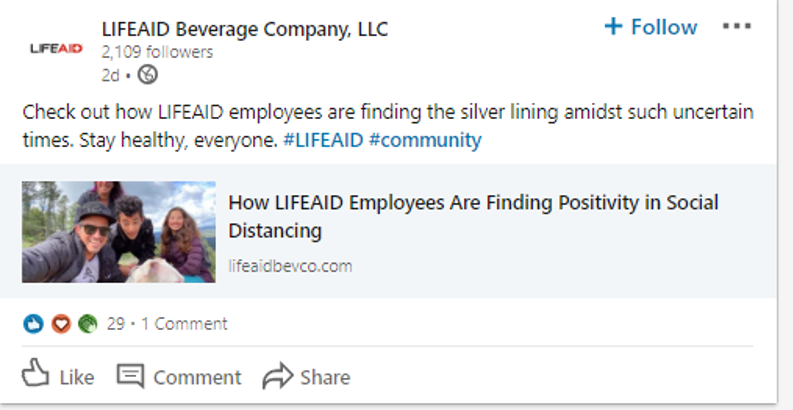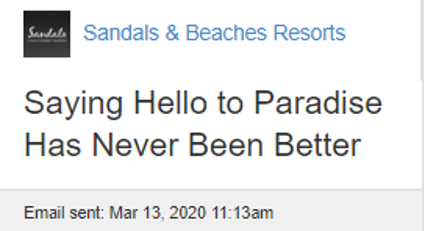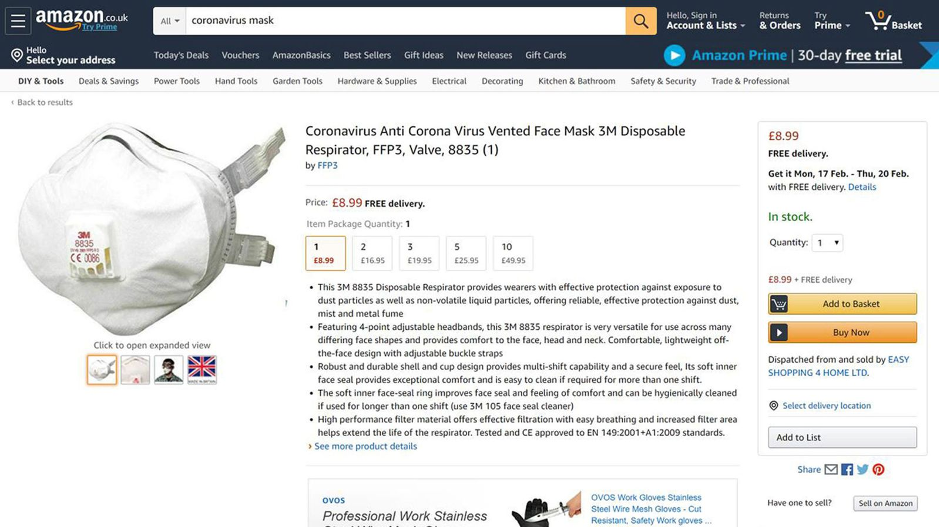PR & Marketing During A Pandemic
Everyday lives changed so quickly in the past month, as COVID-19 became a pandemic. Travel came to a virtual halt, schools closed, and governments around the world placed citizens on lockdown. It’s estimated that in total COVID-19 will cost the global economy $2.7 trillion. And naturally, as people’s circumstances changed, so too did people’s search behaviors and online usage. In this article, we’re looking at PR & Marketing during a pandemic. Our expert team will analyze the current landscape and share some best practices for refining your marketing strategy and messaging.
COVID-19 and Online Behaviours
Some industries were well poised for online acquisition, others were not. Winners included food delivery outlets, supermarket deliveries, and online retailers. Other winners included “work from home” tools like Skype, Zoom, Oracle and Basecamp. Companies that struggled to adapt were those without an online presence or those that were not set up to allow employees to work from home. Let’s look at the stats:
· Physical store visits dropped by 90% in one month.
· The virus is expected to lose the travel sector 820 billion dollars. Travel firms are trying to encourage customers to rebook instead of canceling.
· Average order values (AOV) by sector, show that consumers are spending more than usual on grocery, pharmaceutical and online retail. Travel is down, as you would expect, as is sports & outdoor.
· Google search has been dominated by coronavirus queries with unprecedented search jumps of 3,000% +
· And our favorite, spending on beer, wine and liquor rose 60% the week of March 16 over the same week in 2019.
· Netflix and Disney+ subscriptions are up too as more people stay at home. Netflix Analyst Michael Olson commented that international subscribers will grow 30.9% compared to the prior-year quarter, ahead of expectations.
Covid-19 – Marketing Checklist
Customer behavior has changed and as marketers, we need to adapt fast. Here’s our urgent marketing checklist. These are the marketing elements Moondust Agency has already adjusted for clients. If you’re a brand managing your marketing in-house, you may want to check on these. Or talk to our team for assistance.
1. Check Scheduled Posts - What was appropriate 3 weeks ago might not be now. Take the time to run through any scheduled posts and delete or adjust anything that doesn’t fit with the current mood.
2. Get Your Business Online - Google search traffic shows that people are still buying but of course online. It’s essential that any businesses able to have an online store, delivery or online support, do so as soon as possible. Online presence also includes “Google My Business”, local directories or forums and of course, social media.
3. Update Business Hours - If you’re already on Google My Business, be sure to update any of your business operations if they’re changed by COVID-19. If you’re a physical store that has closed, be sure to post a notice telling customers how they can shop online.
4. Make Products Shoppable – We talked about creating shoppable pins on Pinterest. Now more than ever, it’s essential to open every online shopping avenue. Talk to our team to get started with this.
5. Engage Your Customers On Social - Your customers expect that your business might change during the pandemic. They will be looking for updates, asking questions and seeking reassurance. Now, more than ever, it’s essential to be communicative on your social media channels.
6. Create Helpful Content – Your blog content should be super helpful right now. Tell customers how you are supporting them. Explain how they can order. Provide updates reassuring them that your team is well and working remotely. Now is the time to answer questions and show that your brand is still operating.
7. Cease All Non-Essential Press Releases - Press releases and launches need to be carefully considered right now. The reality is that nobody cares unless they are relevant to the current pandemic. For example, The launch of Disney+ in the UK was absolutely perfect because it met the market need. The brand also nailed their launch strategy (we will talk about that later). Similarly, Bolt launched a delivery service mid COVID-19. But it was tastefully done and met customer needs. However, if you’re trying to sell anything deemed “non-essential” you should wait. Launching now will seem insensitive and will not yield the sales you want. It might even earn you some backlash.
8. Don’t Use #COVID-19 To Promote – We know it’s tempting. #Covid-19 #Lockdown and #Stayhome are trending and you want to promote your business. It seems like a great match. But it isn’t. Use the hashtag to check on the safety of clients and employees and to provide helpful information. Use it to talk about the current situation and how you can support customers. Don’t use it to promote the sale of your new energy drink. Backlash against companies exploiting tragedies is always fast, relentless and unforgiving. Just don’t do it.
9. Be Positive – No, that doesn’t mean we are jumping for joy in the middle of a pandemic. It means we are calm, positive and helpful. Messaging in emails, social media, and your website should reflect this.
10. Online Advertising – Whilst we are advocates of organic marketing here at Moondust Agency, we agree that online businesses can boost their revenue right now with paid advertising. If you’re currently running ads, take the time to pause them and review their messaging. Is it relevant to customer sentiment? Can you still provide “next day delivery” or “free shipping” for example?
Google Ads: Reach customers as they search online for your keywords. Additionally, you can reach your ideal audiences across Google Maps, display ads, Gmail, and YouTube.
Facebook ads: With over 2.4 billion users and the combined advertising power of Facebook, Instagram, and Messenger, Facebook ads are the preferred form of social media advertising. We notice more success with B2C than B2B adverts on this platform. That means if you’re promoting home delivery of food items you will probably do well. Business services are more difficult.
Brands Behaving Well During Covid-19
We mentioned Disney+ earlier as a brand who continued with their launch amid positive reception. Disney+ launched in the UK on March 24, 2020.
Here’s what they got right
· The channel launched with a helpful 7 day free trial to tempt UK users
· Disney decided to reduce picture quality due to a sharp increase in internet traffic. This was viewed as playing nicely and helping manage the increased internet usage of those working and watching from home.
· Mass PR coordinated across all major UK newspapers, websites and social media sites helped gain user traction.
· Their social media messaging fits the lockdown mood without exploiting COVID-19.
Other brands we have loved are ASOS who tuned into the nation’s pajama/stay at home mode. They have recognized their opportunity to sell clothes but are doing so in a way that is humorous as opposed to tasteless.
Below is a Facebook ad from Peet’s Coffee that offers a discount on coffee subscriptions. We can debate whether it’s smart or opportunistic, but it fits a market need and the messaging is not exploitative. It also gives a helpful discount, so we believe it’s a positive message.
We also love wellness beverage brand LifeAID which has seen sales of its ImmunityAID SKU increase up to 500% since March 1. The brand is focusing on employee and consumer wellness which is illustrated through their social media posts:
Co-founder and president Aaron Hinde said:
“This is a national crisis we’re in and the last thing we want to be seen doing is profiteering from people’s fears. We want to take a leadership role and be a solution for people. We don’t want to contribute to the fearmongering. I’ve seen other companies blatantly claiming that [their product] is gonna cure coronavirus and that’s just not accurate.”
Brands Behaving Badly During Covid-19
From the seemingly unaware to the downright exploitative. We have seen everything during COVID-19. Resort chain Sandals sent an email to subscribers with the subject line “Saying Hello to Paradise Has Never Been Better.”
It also emphasises a “no worry” vacation!” There’s no recognition of coronavirus related travel bans, or the associated travel anxiety people are feeling. And it was sent on March 13 so this was at the height of the pandemic. It’s possible the email was prescheduled, but this reiterates the need to check scheduled messaging. This type of email is likely to cause confusion amongst passengers who think they can still travel.
Then there was solar products company GoSun, which sent an email with the subject line, “Is There a Bright Side to Coronavirus?” We see what they were trying to do but it was the wrong tone for the global mood.
It goes without saying that false advertising or exploiting the demand for face masks or hand sanitizer is just plain wrong. The Advertising Standards Authority (ASA) described adverts by Easy Shopping 4 Home Ltd as "misleading, irresponsible and likely to cause fear without justifiable reason.
We would love you to share your PR & marketing stories with us. Have you seen any great brand examples in the past month? Or do you have a tip that we missed? Tweet us @moondust_agency and let us know. Need help with your online marketing? Talk to our expert team now.
We hope our readers and social media community are staying well during this difficult period. We are always here to support you.












